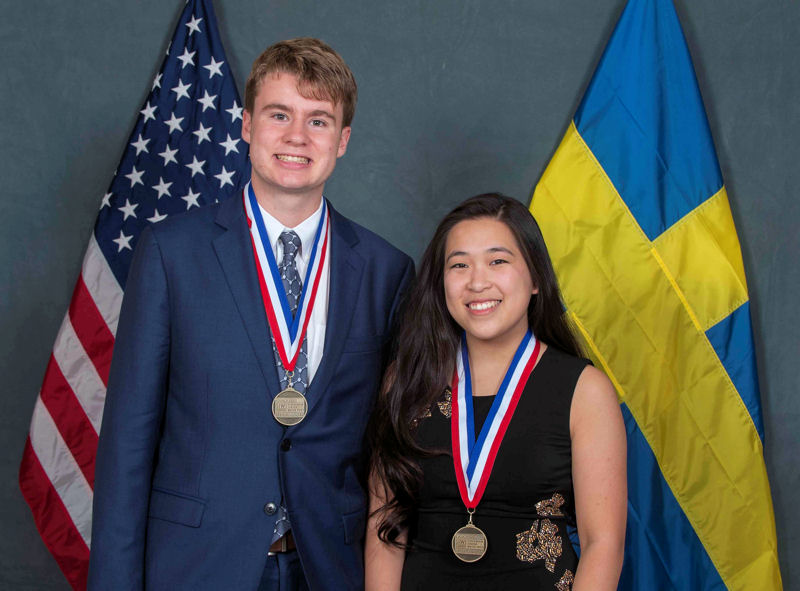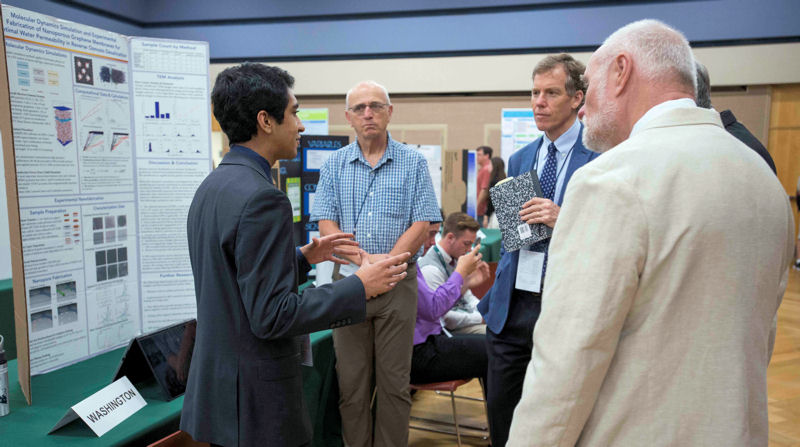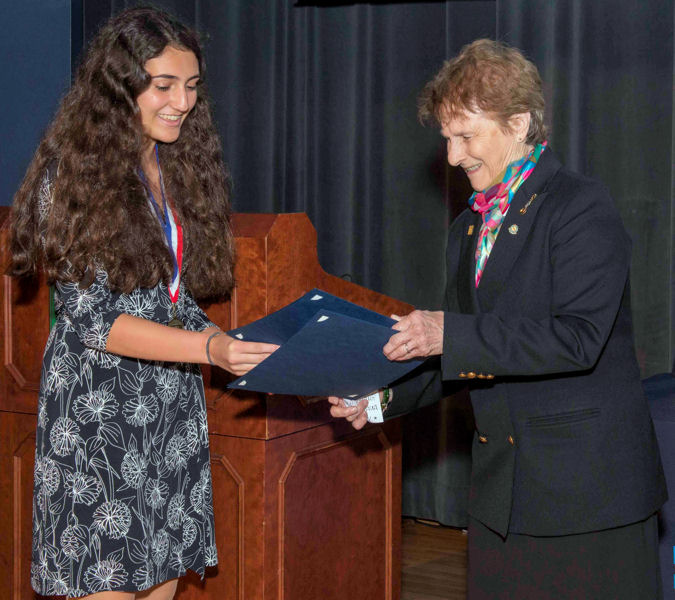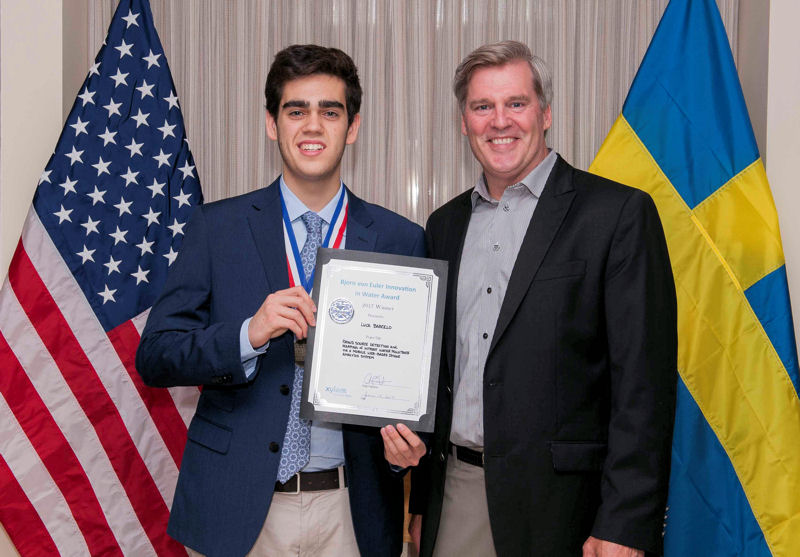
Ryan Thorpe and Rachel Chang from Manhasset, N.Y., placed first in the 2017 U.S. Stockholm Junior Water Prize (SJWP) competition for developing a biosensor and purification unit. Photo courtesy of AOB Photo.
A team of two high school students from New York placed first at the 2017 U.S. Stockholm Junior Water Prize (SJWP) competition in June. For their water science project, Rachel Chang and Ryan Thorpe, both of Manhasset, N.Y., developed a graphene-based biosensor capable of detecting the presence of extremely low levels of bacteria in less than 1 second. They created a purification unit capable of quickly and cost-effectively removing the bacteria as well.
In their paper, “A Novel Approach to Rapidly and Sensitively Detect and Purify Water Contaminated with Shigella, E. coli, Salmonella, and Cholera,” the students describe creating biosensors with two different electrode configurations and a purification unit. They tested the effectiveness of their systems at identifying and removing small quantities of waterborne pathogens responsible for these types of bacterial contamination.

Apoorv Khandelhal of Sammamish, Wash., a runner-up in the SJWP competition, talks to judges about his research into optimal permeability of membranes for desalination. Photo courtesy of AOB Photo.
“The scientific approach used was excellent and allowed Chang and Thorpe to develop high-quality, reproducible data,” said Jeannette Brown, chair of the SJWP Review Committee. “The process they developed is simple and rapid and can be used in both developed and developing countries to ensure safe drinking water. This was an outstanding project.”

Ana Humphrey of Alexandria, Va., receives her runner-up certificate from Jeanette Brown, head judge of the 2017 U.S. SJWP competition. Humphrey developed a mobile app to identify and count E. coli bacteria. Photo courtesy of AOB Photo.
Chang and Thorpe won $10,000 and a trip to represent the U.S. at the international SJWP competition in Stockholm this August. Two runners-up at the U.S. competition, Ana Humphrey of Alexandria, Va., and Apoorv Khandelhal of Sammamish, Wash., each received $1000. Humphrey developed ColiFind, a digital image-analysis application for smartphones to identify and count E. coli bacteria. Khandelhal determined the optimal water permeability of nanoporous graphene membranes needed for desalination.
Luca Barcelo of Greenwich, Conn., received the Bjorn von Euler Innovation in Water Scholarship Award from Xylem Inc. (Rye Brook, N.Y.). He developed a test to detect nitrates in water samples and created a crowdsourcing application to map this data.

Luca Barcelo of Greenwich, Conn., received the Bjorn von Euler Innovation in Water Scholarship Award from Xylem Inc. (Rye Brook, N.Y.). He developed a test to detect nitrates in water samples and created a crowdsourcing application to map this data.
“WEF is very proud to shine a spotlight on some of our country’s brightest high school students, who impress us all with their innovative projects that focus on protecting our precious water resources,” said Eileen O’Neill, Water Environment Federation (WEF; Alexandria, Va.) executive director. “These students give us great confidence in the future of water science and research.”
A total of 59 students representing 48 U.S. states and Puerto Rico were selected to compete in the U.S. competition, held June 16–17 at the University of North Carolina at Charlotte. The Stockholm Junior Water Prize aims to increase students’ interest in water issues, research, and careers, as well as raise awareness about global water challenges. WEF and its Member Associations organize the regional, state, and national competitions with support from Xylem Inc., which also sponsors the international SJWP competition.








July 25, 2017
Featured